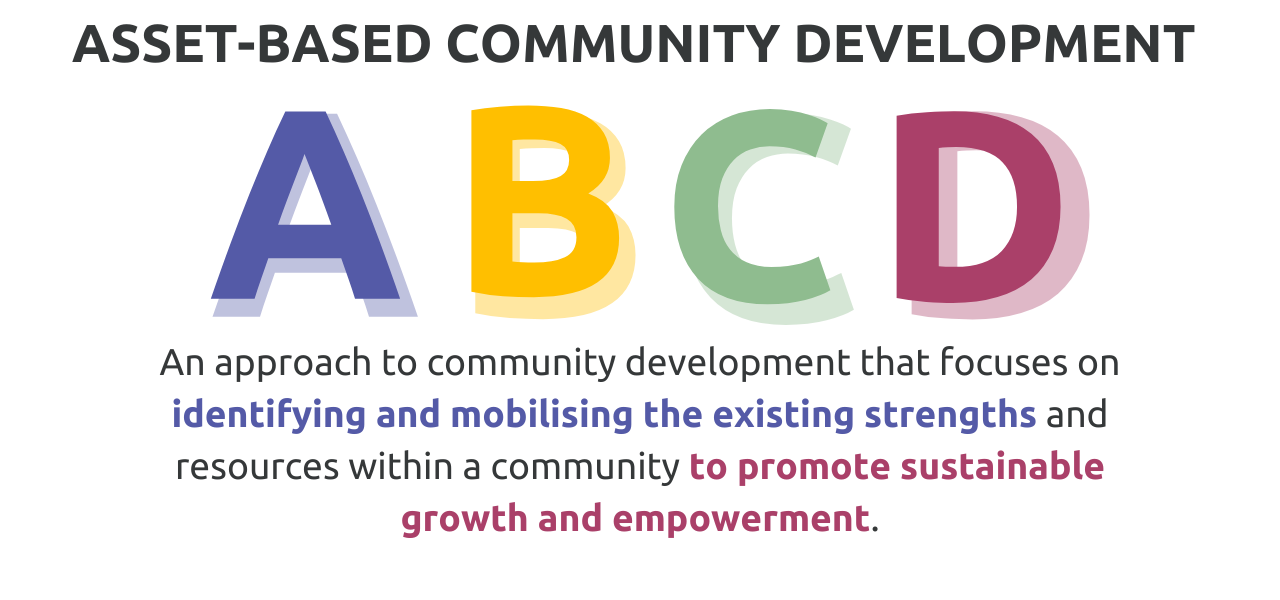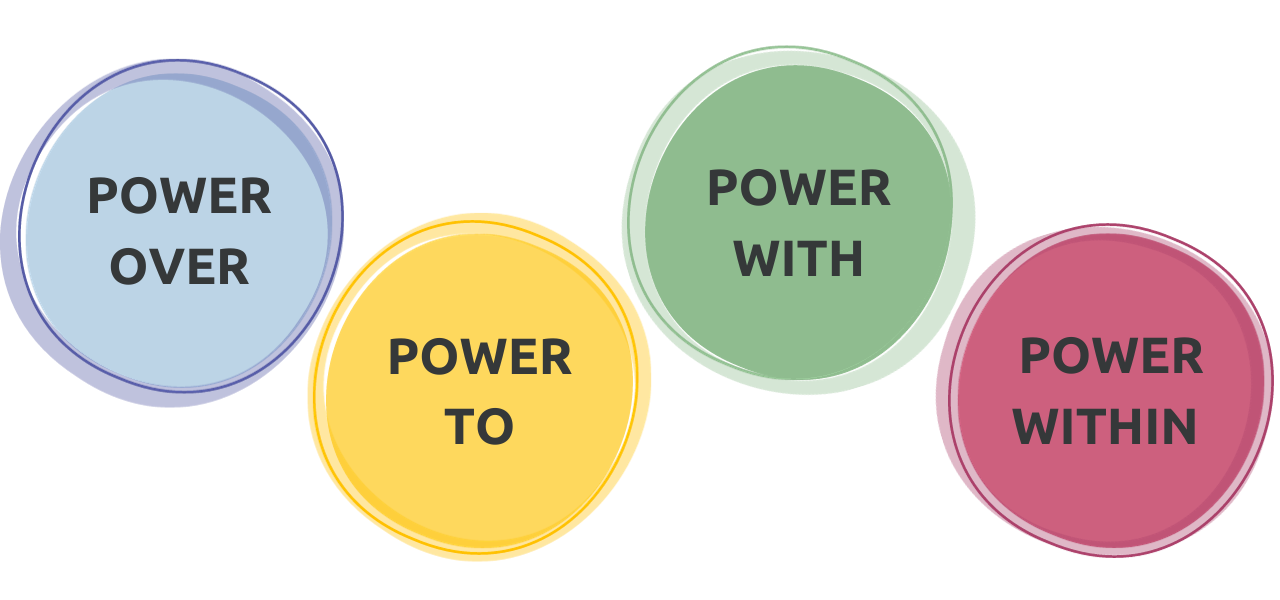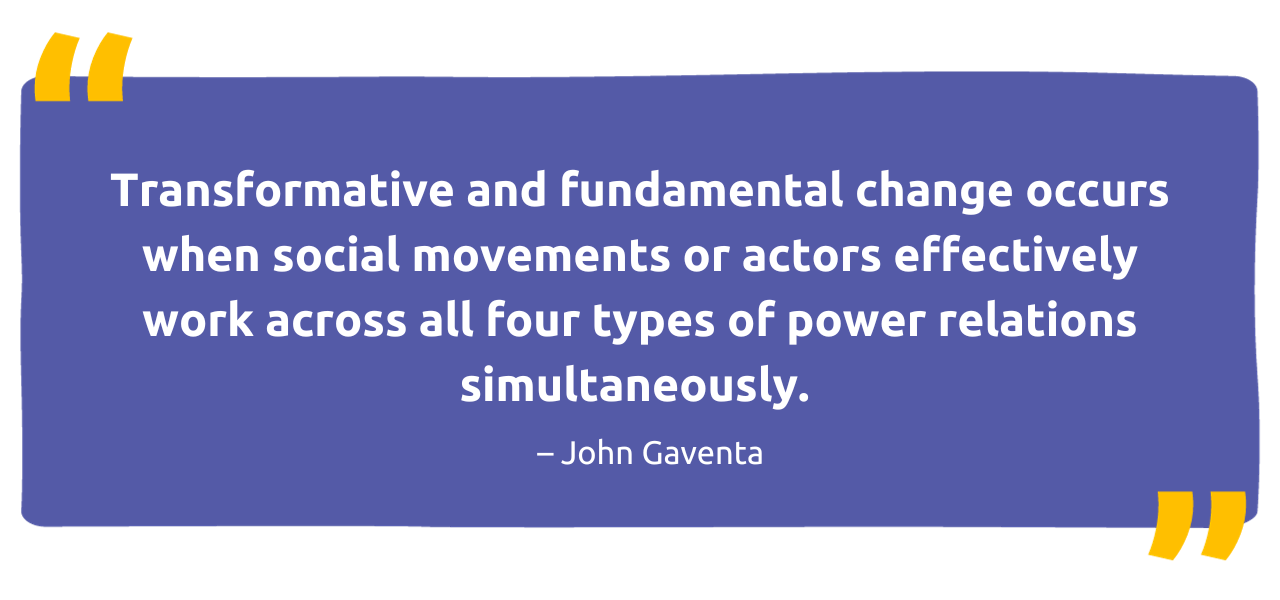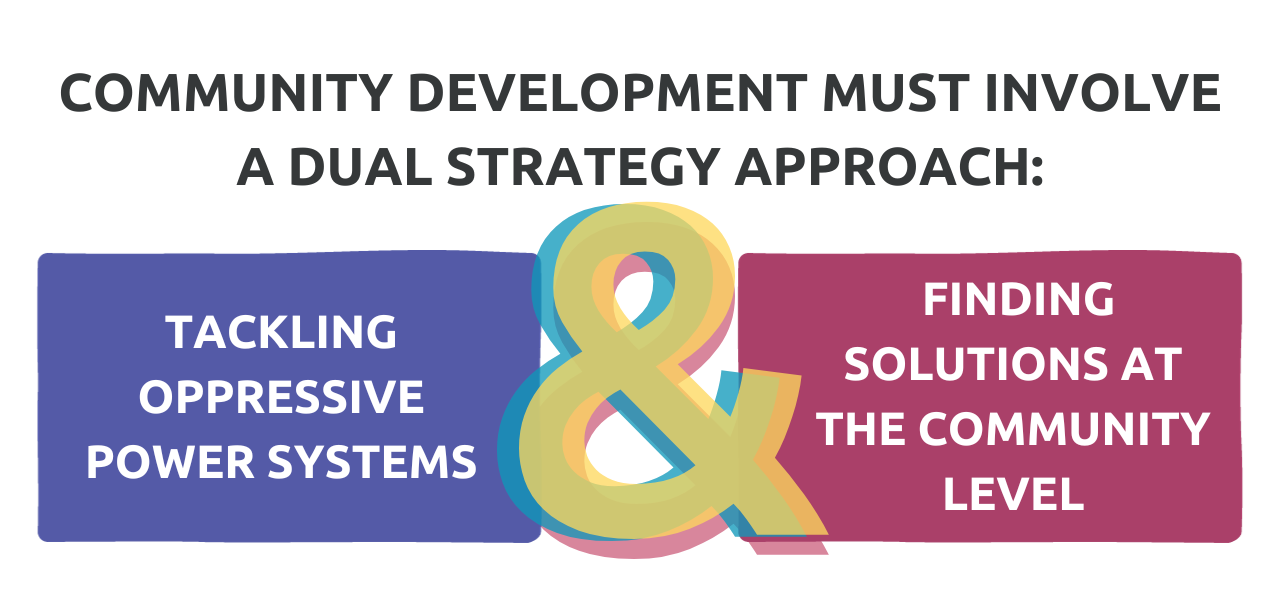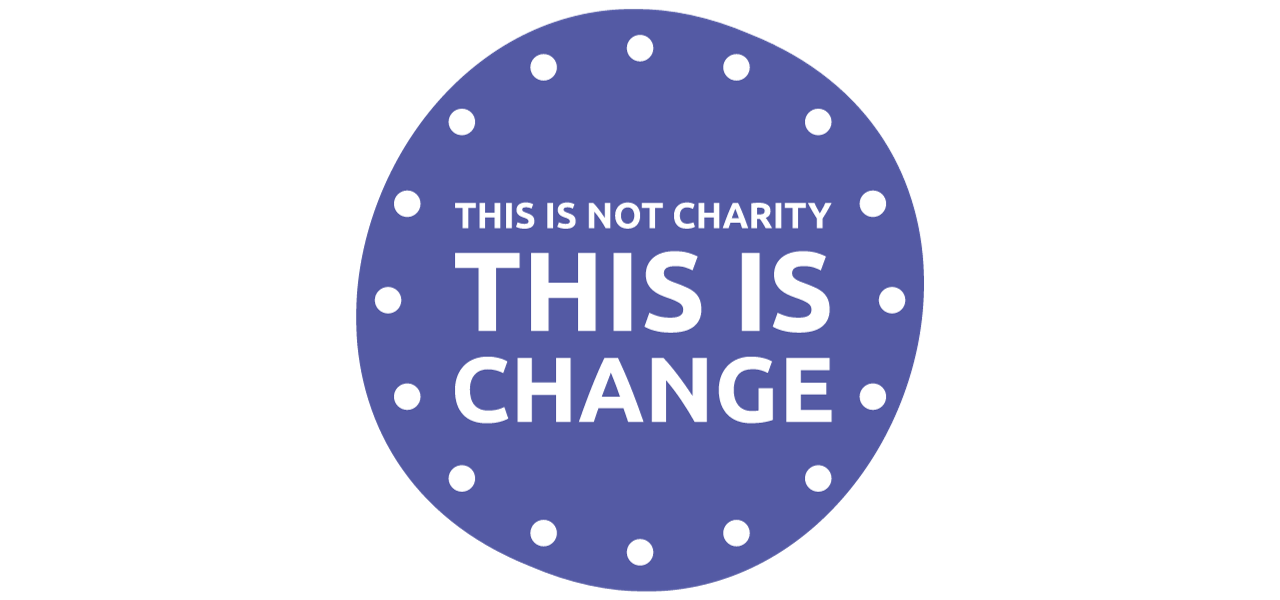Addressing Power Relations in Community Development
Since its inception in the late 1980s, Asset-Based Community Development (ABCD) has adapted to changing societal needs, demonstrating its responsiveness.
At the heart of ABCD lies the belief that communities, by recognising and mobilising their unique strengths, can forge a better future. However, a prevailing criticism of ABCD is its oversight of internal and external power systems.
The Dandelion Philosophy, while aligning with traditional ABCD, distinguishes itself by also prioritising mental well-being, cultural sensitivity, and technology to challenge existing power structures.
This holistic approach emerges as a new paradigm for community development, emphasising a holistic method that guides communities on a journey towards true empowerment.
Recognising Power Relations
Several authors differentiate between four types of power.
“Power Over” is considered the traditional understanding of power. It relies on force, coercion, domination, and control, primarily driven by fear. This form of power operates under the assumption that power is a finite resource, held by certain individuals while others lack it.
“Power To” highlights the productive or generative potential of power, emphasising the creation of new possibilities or actions without resorting to relationships of domination. It is grounded in the unique potential of every individual to shape their life and world. This form of power is the ability to make a difference, innovate, create something new, or accomplish goals.
"Power With" is a shared power that emerges from collaboration and relationships. It is based on principles of respect, mutual support, shared power, solidarity, influence, empowerment, and collaborative decision-making. Unlike domination and control, "Power With" fosters collective action and the capacity to act together.
"Power Within" is linked to a person's sense of self-worth and self-knowledge, involving the ability to recognise individual differences while respecting others. It entails individuals having a sense of their capacity and self-worth, fostering the belief that they can make a difference.
ABCD is primarily associated with operating in the "Power With" space, centred on fostering relationships and connections within a community, supporting local associations, and promoting collective action. However, some argue that, for a more comprehensive and transformative approach, ABCD should also consider the other types of power.
Neglect of External Power Systems
Recognising how external powers, such as governments and economies, influence marginalised communities, brings to light issues like hunger, poverty, and stigmatisation.
These challenges predominantly arise from undervaluing the rights of oppressed individuals within these external systems. Neglecting to address and challenge these systems may result in powerful individuals exploiting community resources for personal gain.
Additionally, there is an assumption that communities can independently overcome their challenges. Community members may also be influenced by a negative narrative about themselves, limiting their ability to take action.
When a community lacks an understanding of its power dynamics, oppressive actions can go unchecked and strengthen. Evidence suggests that marginalised individuals might perceive themselves negatively, attributing blame to their social status. This strengthens the influence of those shaping their narrative.
Another issue lies in the oversight of power structures within the community. Powerful groups or individuals might lead without considering what is best for the community in a typical ABCD strategy.
Tactics for Levelling the Playing Field in ABCD
To address internal and external power systems effectively, a dual approach is essential. This involves:
Empowering communities by enhancing local strengths.
Dismantling external oppressive power structures.
This dual approach focuses on educating communities about oppressive power structures and highlights community empowerment in guiding their development. Together, they challenge power systems through organised, nonviolent action.
Proposed enhancements to increase the effectiveness of Asset-Based Community Development involve the incorporation of three additional components in addressing power relations:
Disindoctrination: Educating community members about oppressive systems and the local problems they cause.
Identifying and Recognising Strengths: Using an anti-oppression approach to identify and recognise strengths, skills, and resources within the community. This includes addressing internal power imbalances and empowering marginalised groups.
Organised Action: Encouraging community members to come together, form groups, and conduct peaceful campaigns to challenge external power structures.
Practical Examples: Cambridge Village, South Africa
"Power Over"
Since the era of colonial rule and apartheid, marginalisation and the erosion of cultural identity have become deeply ingrained in intergenerational trauma, adversely impacting numerous communities in need across South Africa, such as Cambridge Village.
Within the Cambridge community, in the Eastern Cape of South Africa, the imbalanced internal and external "Power Over" dynamics manifest in crime, oppression, violence, murder, substance abuse, and various subtler practices that perpetuate the cycle of trauma.
Recognising these issues, The Dandelion Philosophy addresses oppressive identity politics and intergenerational trauma through culturally specific programmes aimed at whole-human healing.
“Power To”
At The Dandelion Philosophy, we empower individuals with the essential tools to positively transform their lives and shape their futures. Through the provision of Afrocentric psychosocial support, skills development programmes, and access to technology, we equip community members with the means to embark on entrepreneurial ventures, fostering self-sufficiency.
This empowerment not only liberates community members from dependence on external aid but also encourages them to pursue their goals independently, taking full control of their futures.
"Power With"
Organising within an environment deeply marked by apartheid's legacy poses significant challenges, not just due to the loss of identity but also because of generations burdened by trauma.
The establishment of the Cambridge Youth Society (CYS) by courageous individuals marks a pivotal step towards change in Cambridge Village. Led and founded by local leaders in the community of approximately 10,000 residents, CYS has played a vital role in creating a supportive network, disseminating information, educating, and facilitating communal activities in the village. This has resulted in reduced crime rates and enhanced cooperation among community members.
Collaborating with CYS and Cambridge Village, The Dandelion Philosophy recognises existing assets in the community, fostering systemic change towards self-sufficiency through our holistic Intervention and Sustainable Growth Model™. This model addresses food security, financial stability, education, innovation, sustainability, and psychosocial healing.
"Power Within"
Access to adequate nourishment, education, and healing in a secure environment is pivotal for fostering a strong sense of self-worth in individuals. Through our whole-human approach to community intervention, we address these individual needs, revitalising individual and cultural pride and identity.
This approach aids community members in gaining a deeper understanding of themselves and cultivates the ability to think critically about their circumstances. These elements are indispensable for recognising oppressive power relations and empowering individuals with the agency to instigate change, both within and beyond the community.
A New Paradigm of Community Development
In the intricate web of community development, as seen in approaches like ABCD, the interaction between challenging oppressive power structures and nurturing community strengths is crucial for lasting transformation.
This dual approach serves as a catalyst, breaking down external barriers that perpetuate marginalisation while also fostering the inherent potential within communities.
Recognising the multifaceted dimensions of power relations unveils a more comprehensive and nuanced approach to community development. The journey towards genuine empowerment goes beyond traditional paradigms, incorporating mental well-being, cultural sensitivity, and technological innovation.
The Dandelion Philosophy's commitment to acknowledging existing assets and empowering communities through our whole-human approach is a testament to the profound impact achievable when we holistically empower communities to shape their futures.
Learn more about our unique approach to community development here, or consider donating to our cause to enable us to continue our transformative efforts within impoverished communities worldwide.


